Hackers target the EL PAÍS website
Distributed Denial of Service attacks from around the world crash newspaper’s digital platform in early hours of Thursday
Madrid
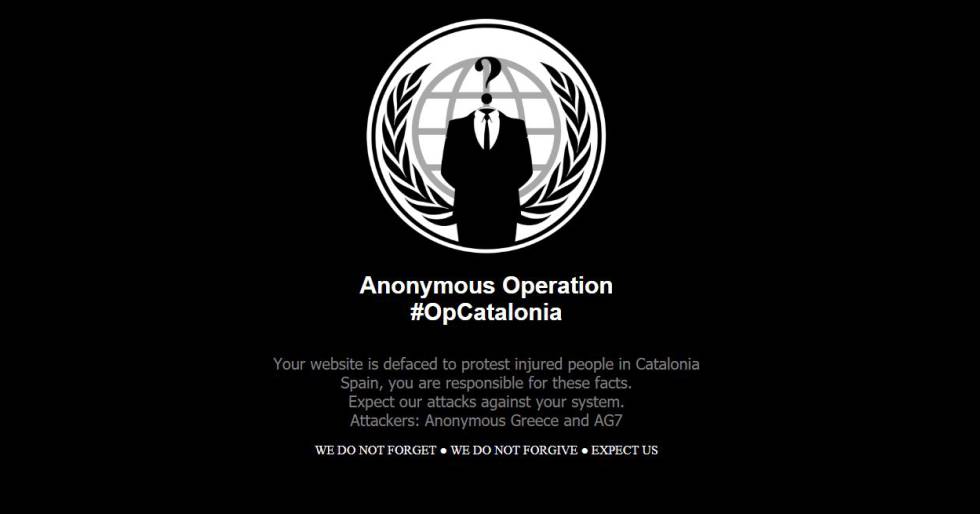
A message posted by Anonymous about Catalonia.
A group of hackers has directed a coordinated series of distributed denial-of-service (DDoS) attacks against the digital platform of EL PAÍS, impeding access to the newspaper’s online stories on an intermittent basis between 1.30 and 4am today.
Last week, the Anonymous collective threatened to wage a campaign in defense of Catalan independence, and against the digital environment of a number of Spanish institutions, including the Constitutional Court, the Spanish Royal Household, and the government.
The Anonymous collective threatened to wage a campaign in defense of Catalan independence
IT technicians at EL PAÍS have managed to repel the numerous DDoS attacks, which took place on a massive and coordinated scale from a number of different areas around the world.
A DDoS attack works by directing a large number of computers to attempt to connect to a website, thus flooding it with traffic and leaving it inaccessible. During the 10 attacks that EL PAÍS suffered in the early hours of this morning, a majority of the traffic came from countries such as China and Turkey. That is not to say that the authors of the attack were in these countries – such an attack can be carried out by mobilizing farms of sleeping computers or devices that are connected to the internet via remote means.
“Anonymous Catalonia boasts of having hacked the list of private telephone numbers from the government, see which have been hacked. Thread:”
The attacks directed such a high volume of connection requests that EL PAÍS routers were unable to serve all of the traffic.
Also affected were other webpages from Grupo PRISA, and which share a platform with EL PAÍS, such as Cadena SER, 40 Principales, AS and the Colombian radio networks Caracol and W.
Since the Catalan crisis deepened with the holding of an illegal independence referendum on October 1, EL PAÍS has published a number of stories about support from Russian digital networks for the independence movement, and the support of hackers within the orbit of Russia for the logistics of the poll. Hours before the attack, this newspaper revealed a visit made to Barcelona by an ally of Putin in Southern Ossetia, a Georgian area in the orbit of the Kremlin whose independence, declared in the 1990s in a context of war, is only recognized by Nicaragua, Venezuela and Russia itself.
The numerous DDoS attacks took place on a massive and coordinated scale from a number of different areas around the world
In recent days, Anonymous has managed to crash the webpages of the Spanish Royal Household, the Constitutional Court, the governing Popular Party (PP), the CNMV Spanish markets watchdog, the CNI intelligence agency and soccer club Real Madrid, among others.
On Wednesday an attack against the National Police was announced after the AnonCatalonia page revealed its suspicions that the collective had been infiltrated by the Spanish security forces. In fact there have been tensions within this collective of hackers since the @anoncatalonia Twitter account published a file with the apparent telephone numbers of members of the government, something that was later discredited.
English version by Simon Hunter.
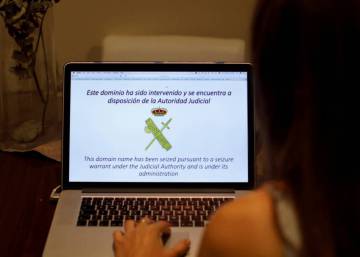
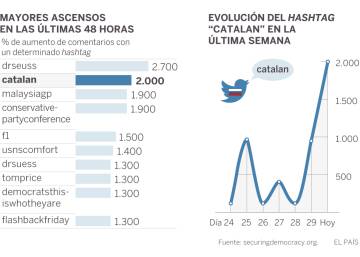
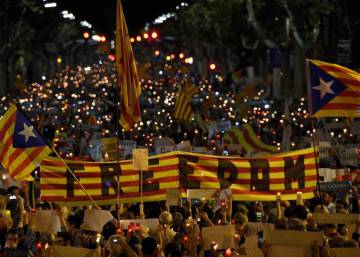
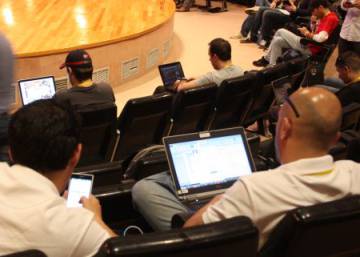
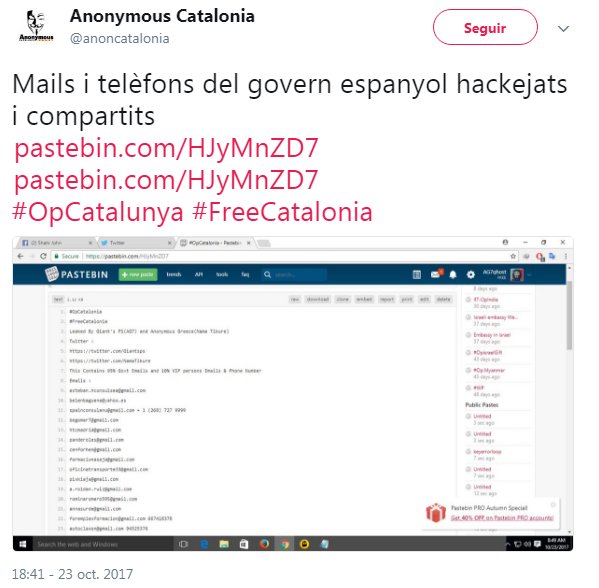












.png)



























No hay comentarios:
Publicar un comentario